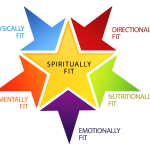Moving into assisted living can be difficult for your mom or dad. Their surroundings are changing as are the people they see on a regular basis. In the end this can be a very positive experience, but the transition can be tough.
Create a Daily Schedule
It is important to think about their daily schedule and to make sure it is filled with enough activities to occupy and stimulate their minds and exercise their bodies. The ideal is that they come to the end of the day pleasantly tired. This will help them sleep better. It will also make the transition to a new environment easier on them.
Focus on Previous Interests
Begin by focusing on their previous interests and hobbies before the dementia diagnosis. While you may need to modify and adjust these activities it is a good idea to encourage them to continue. Keep in mind though, that they will need more support and assistance to participate in these activities.
For example, one man that I worked with used to love carving wood. But after his dementia diagnosis he stopped that activity altogether. One of his problems was that his ability to carve with no assistance was gone. His family expected him to continue in his hobbies using his own initiative. He could not do that. And so he sat in his chair, slowly losing interest in everything around him.
Once he started cognitive coaching and regained self-confidence, he began to participate in activities with his family. While he didn’t go back to wood carving on his own, he could talk about things he enjoyed, and he learned other activities.
Provide Positive Feedback
It is important when adjusting activities that you surround them with positive feedback and reinforcement of their efforts. It is difficult as an adult to try activities when you feel like you might embarrass yourself. You also need to allow them to do as much as possible themselves. Encouraging independence is important for their self-esteem.
Focus on Activities You Can Do Together
You may also find activities that you can do together make a big difference to their quality of life. Some examples of possible activities are:
- Singing and listening to music;
- Reading the newspaper to them and commenting on the stories;
- Puzzles that are not too complicated but are not childish;
- Cook or bake a simple recipe;
- Garden or visit a garden;
- Household cleaning, like sorting socks or emptying the dishwasher can be helpful tasks that they can do under a watchful eye;
- Arts and crafts such as knitting or painting;
- Organize the house together, giving them one task at a time;
- Exercise, walking, yoga, tai-chi;
- Watch television together and talk about what you are seeing; or
- Read them a book or listen to an audio book together.
One of the key ideas is to create human interaction through the activity. When you discuss a movie, television show or newspaper with them, you are helping them connect to the world. This gives them a sense of their continuing worth as a human being.
Focus On The Process Over the Result
Focus on the process not the result of the activity. The important thing is engagement. The more engaged they are with you or another caregiver, the happier they will be. You do not need to be the one who does everything. You may arrange for a friend or a paid caregiver to come in and do certain things with your mom or dad. One daughter arranged for a caregiver to come in and spend time with her dad playing pool. He spent his days in a memory unit, but on the weekends, he would go downstairs to the games room to play pool, a game he still enjoyed and was good at.
You can also plan to take them to community events or social activities but keep in mind that noise can be overwhelming for them. Pay attention to their face. Are they still focused or is their attention drifting? Once they have stopped paying attention, it is probably time to change activities.
Creating a full daily schedule will help reduce anxiety and boredom. Anxiety and boredom are at the root of so many of the challenging behaviours we see in memory units. If you can fill their days, they will sleep better and they will be happier.
Do you need help in the area of Dementia Care? Check out this available resource: Fit Minds Family Caregiver Program








Reply